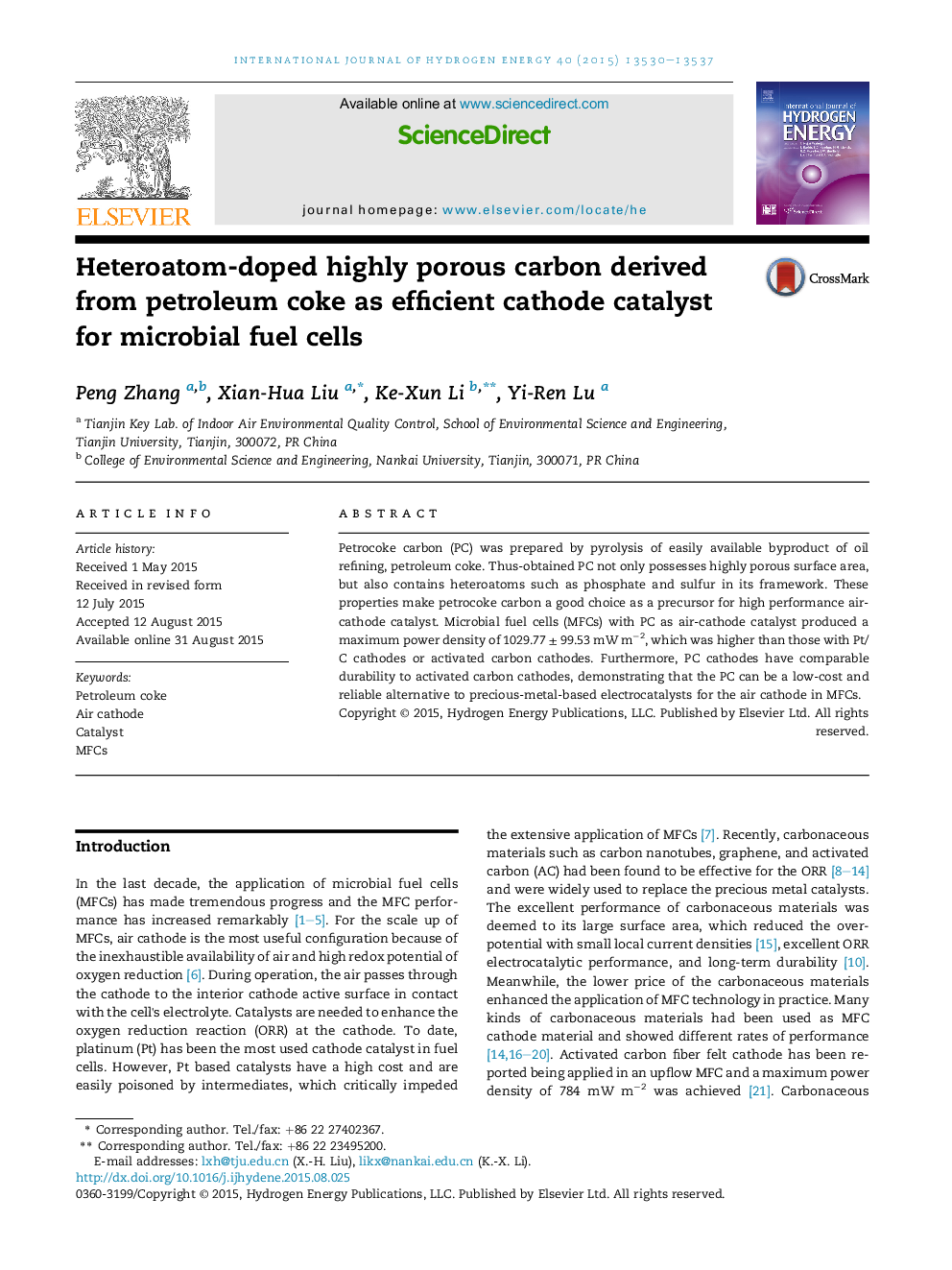| Article ID | Journal | Published Year | Pages | File Type |
|---|---|---|---|---|
| 1274644 | International Journal of Hydrogen Energy | 2015 | 8 Pages |
•Porous carbon derived from petroleum coke is used as efficient cathode catalyst.•The performance of petrocoke carbon cathode is comparable to Pt/C cathode.•The high performance can be attributed to its high surface area and heteroatoms.•Petrocoke carbon is a low-cost and reliable alternative to Pt-based cathode catalyst.
Petrocoke carbon (PC) was prepared by pyrolysis of easily available byproduct of oil refining, petroleum coke. Thus-obtained PC not only possesses highly porous surface area, but also contains heteroatoms such as phosphate and sulfur in its framework. These properties make petrocoke carbon a good choice as a precursor for high performance air-cathode catalyst. Microbial fuel cells (MFCs) with PC as air-cathode catalyst produced a maximum power density of 1029.77 ± 99.53 mW m−2, which was higher than those with Pt/C cathodes or activated carbon cathodes. Furthermore, PC cathodes have comparable durability to activated carbon cathodes, demonstrating that the PC can be a low-cost and reliable alternative to precious-metal-based electrocatalysts for the air cathode in MFCs.
Graphical abstractFigure optionsDownload full-size imageDownload as PowerPoint slide
